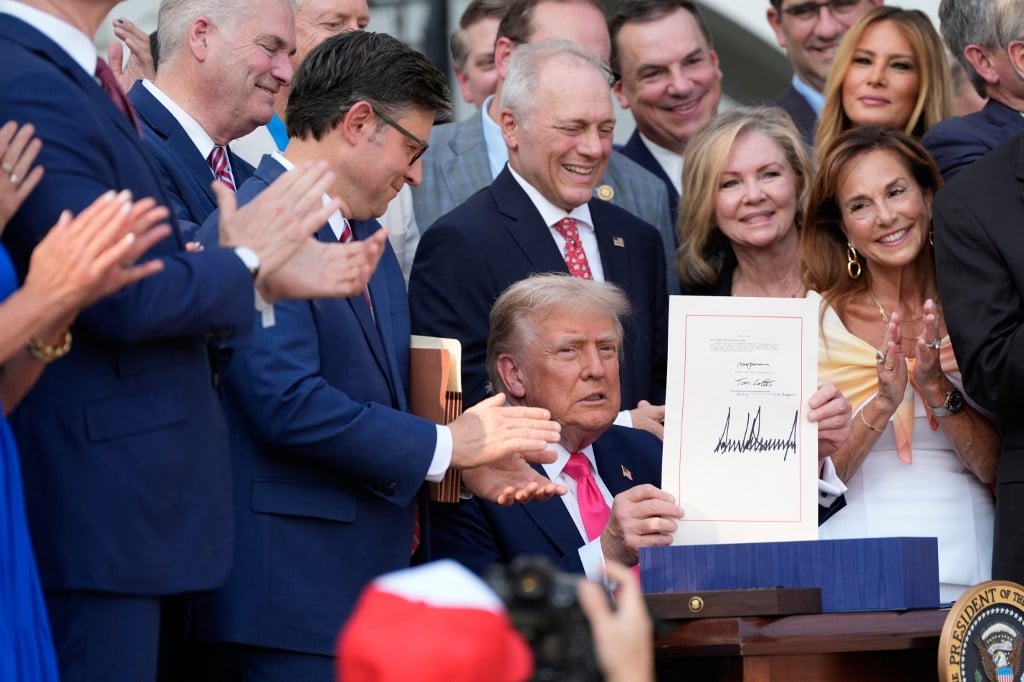
Many of Donald Trump’s Big Beautiful Bill supporters and detractors argue amongst each other about the merits of the measure, but one provision that has been flying under the radar is that the threshold tax on slot-winning hand pays has increased beginning in 2026.
Makes Slots of Sense
Slot players have been complaining for years about the $1200 threshold on winning slot plays that necessitates the casino calling an attendant to pay out the winnings in cash and providing government forms to pay taxes on those winnings.
In 1977, the IRS implemented the requirement for casinos to report slot machine winnings of $1,200 or more and provide the necessary tax documents to the winners. This is a law that is nearly 50 years old, and many believe the threshold needs to be increased multifold to keep up with inflation.
States Push for Change
However, their complaints have generally fallen on deaf ears, except in those states like Nevada, where legislators are more attuned to the wants and needs of the gamblers that keep their economy spinning. Nevertheless, federal legislation in this regard has gained little traction until it was recently discovered that an increase had been included in President Trump’s most recent budget proposal.
Under the new provision, beginning January 1, 2026, winnings on one hand of slot play will be increased from $1200 to $2000, and the customer will receive the obligatory W2G form, a special tax document that also alerts the IRS of gambling wins that must be included when calculating annual income when taxes are filed.
Moreover, Section 70433 stipulates that moving forward from 2027 and beyond, the tax exemption threshold will increase in line with inflation. Specifically, the increase will be calculated by multiplying the amount of the win by the cost-of-living adjustment determined under the act for each calendar year and then rounding to the nearest multiple of $100.
Tribes Support Increase
The idea of increasing the tax exemption for slot hits from $1200 is nothing new.
Tribal gaming facilities have encouraged an increase for years, as have other industry stakeholders. The annoyance of paying the customer and providing a tax form is only exacerbated by the machine locking up and delaying the customer from playing until the machine has been “released” by a casino attendant.
In November, the Internal Revenue Service Advisory Council recommended an increase to $5,800 to IRS Commissioner Danny Werfel, which would account for inflation.
Sam Cohen, government affairs and legal officer for the Santa Ynez Band of Chumash Indians, echoed those sentiments during the meeting and stated, “Failure to index this reporting threshold has placed an unnecessary compliance burden on the player who’s the taxpayer, increased administrative costs for tribal and commercial casinos, and creates paperwork backlogs and operational burdens for the IRS.
“When accounting for inflation, a comparable jackpot reporting threshold today is estimated to be approximately $5,800,” he said. “The IRSAC recommends raising the reporting threshold and subsequently increasing it based on inflation and cost-of-living adjustments each year.”
Proposal Rejected, But Progress Still Seen
Unfortunately, the $5,800 recommendation was not adopted, but at least there was some movement toward ending the frustration slot players feel when celebrating a big win that turns sobering when tax forms are to be signed.
Follow us for ongoing coverage of this and other major industry updates, including insights on the top-rated sportsbooks.







